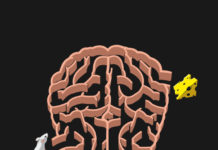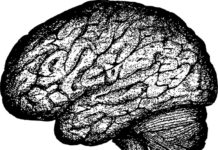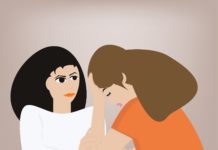Researchers Ask, ‘Why Do Antidepressants Stop Working?’
An international group of researchers, including several with financial ties to manufacturers of antidepressants, explore possible explanations for why long-term users of antidepressants become chronically depressed.
Transpersonal Therapists Examine Ketamine-For-Depression Questions
-The most recent issue of the The International Journal of Transpersonal Studies examines the promises and risks associated with mainstream psychiatry's growing interest in ketamine for the treatment of depression.
Nunavut Declares Suicide Epidemic a State of Emergency
Nunavut, Canada’s largest and northernmost territory, is suffering from a suicide rate that is 10 times the national average. “In the case of Inuit boys 15 to 19,” CBC News reports, “the suicide rate is 40 times higher than those of their peers in the rest of Canada.”
“Anti-Depressants for Teens: A Second Look”
Writing for the Harvard Health Blog, Dr. Nandinia Mani reconsiders the use of antidepressants in teens in light of the reanalysis of Study 329. ...
Major Review Finds Antidepressants Ineffective, Potentially Harmful for Children and Teens
In a large review study published this week in The Lancet, researchers assessed the effectiveness and potential harms of fourteen different antidepressants for their use in children and adolescents. The negative results, familiar to MIA readers, are now making major headlines.
Researchers Fail to Replicate Evidence for “Biotypes” of Depression
A new study casts doubt on whether such biotypes for depression exist.
Excessive Mood & Behavior Arousal in Juveniles Treated with Antidepressants
In a study of 6,767 reports of antidepressant trials in juveniles treated for depressive and anxiety disorders, the risk of psychopathological behavioral or mood...
Animal Study Supports Influence of Probiotics on Resilience to Stress
Researchers experimenting on mice found that Lactobacillus—the probiotic commonly found in yogurt—may help reduce depressive symptoms in reaction to chronic stressors. But human studies have found mixed results.
“Court Orders Electroconvulsive Therapy for Girl with Depression”
The Irish Times reports that a judge has ordered ECT for a 16-year-old with depression and an eating disorder. The doctor asked the court...
Psychotherapy Effectiveness for Depression Inflated by Publication Bias
While publication bias has been known to overestimate the efficacy of antidepressant treatments, a new study suggests that research on the use of psychotherapy in depression suffers from a similar bias.
“The Curious Case of the Antidepressant, Anti-Anxiety Backyard Garden”
“My vegetable beds have even buoyed me through more acute stressors, such as my medical internship, my daughter’s departure for college, and a loved one’s cancer treatment,” writes Dr. Daphne Miller. Now neuroscientists are attempting to study the antidepressant effects of soil microbes in hopes of unlocking the secrets of a powerful mood enhancer.
“A Decade of Questions over a Paxil Study Vindicated”
Martha Rosenberg calls the reanalysis of Paxil and Study 329 “a victory for safety activists, medical reporters, the public and freedom of the press.” But, she warns, “many pro-pill doctors continue to fight evidence of Paxil’s suicide risks and similar SSRIs.”
Systematic Review Finds Antidepressants Double the Risk for Agitation and Violence in Healthy Volunteers
The Nordic Cochrane Center conducted a systematic review of existing research trials on antidepressants and found that the drugs doubled the risk of feelings...
Bullying’s Lasting Impact
From Science Daily: A new study shows that students who experience bullying in the fifth grade are at a higher risk for depression and substance use...
Smartphones, Loneliness, and Depression in Teens
New study finds that smartphone use may precede experiences of loneliness and depressive symptoms among older teens according to longitudinal analysis.
Children Diagnosed with ADHD Younger are More Likely to get Multiple Medications
New research demonstrates that children diagnosed with ADHD at younger ages are more likely than those diagnosed later to receive multiple medications within five years of their diagnosis.
Findings Linking Depression to Abnormal Brain Activity Questioned
Meta-analyses fail to replicate findings linking abnormal brain activity to depression.
What’s the Harm in Taking an Antidepressant?
We know that all drugs have side effects. That’s just part of the deal right? But is it really possible that an antidepressant can cause a sane person to act like a cold-blooded criminal?
From Self Care to Collective Caring
As a trauma survivor growing up in various adolescent mental health systems, I never learned any useful self-care tools or practices. I was taught that my current coping skills (self-injury, suicidal behavior, illicit drug use) were unacceptable, but not given any ideas as to what to replace them with. No one seemed to want to know much about the early childhood traumas that were driving these behaviors. Instead, I collected an assortment of diagnoses. I was told that I would be forever dependent on mediated relationships with professionals, and an ever-changing combination of pills. The message was that my troubles were chemical in nature and largely beyond my control.
“California Moves to Stop Misuse of Psychiatric Meds in Foster Care”
On Tuesday, NPR told the story of DeAngelo Cortijo. DeAngelo became a foster kid at age 3 after his mother attempted suicide. He was “diagnosed with bipolar and anxiety disorders, attachment disorder, intermittent explosive disorder or posttraumatic stress disorder,” and was prescribed “a combination of antipsychotics, antidepressants and stimulants, and was told that taking them was his only hope of being normal.” Through equine therapy, DeAngelo was eventually able to get off all of his medication. Now, California is hoping to pass reforms that would prevent foster kids, like DeAngelo, from being “prescribed antipsychotic drugs at double to quadruple the rate of that not in foster care.”
Antidepressants Are Not More Effective for Severe Depression, Study Finds
A new study, published in Acta Psychiatrica Scandinavica, found that antidepressant efficacy was not dependent on severity.
Study Examines the Difficulty of Withdrawing from Antidepressant Drugs
Correcting unnecessary long-term antidepressant use is difficult and met with apprehension by providers and service-users.
Brain Response to Antidepressant Mirrors Placebo Effect
People diagnosed with severe depression show the same changes in brain scans when they respond to a placebo as they do when they take an actual antidepressant, according to a new study. Researchers also found that those whose symptoms were decreased by a placebo were more likely to report relief from antidepressant drugs.
“Was Sexism Really Responsible for the FDA’s Hesitancy to Sign Off on Flibanserin?”
“The Food and Drug Administration’s approval of pharmaceutical treatment for low sexual desire in women has launched a heated debate over the dangers and benefits of medicalizing sex,” Maya Dusenbery writes in the Pacific Standard. Is “female Viagra” a feminist victory or a product of clever faux-feminist marketing by Big Pharma?
Bipolar? When Quitting is the Answer
Whether it’s the Nurtured Heart Approach, or any other method that’s truly up to the task, we need these effective strategies and ways of thinking to be more widespread so we can lessen the pitfalls of the medical model’s limited prospective which has no idea of how to turn intense into immensely great.




















